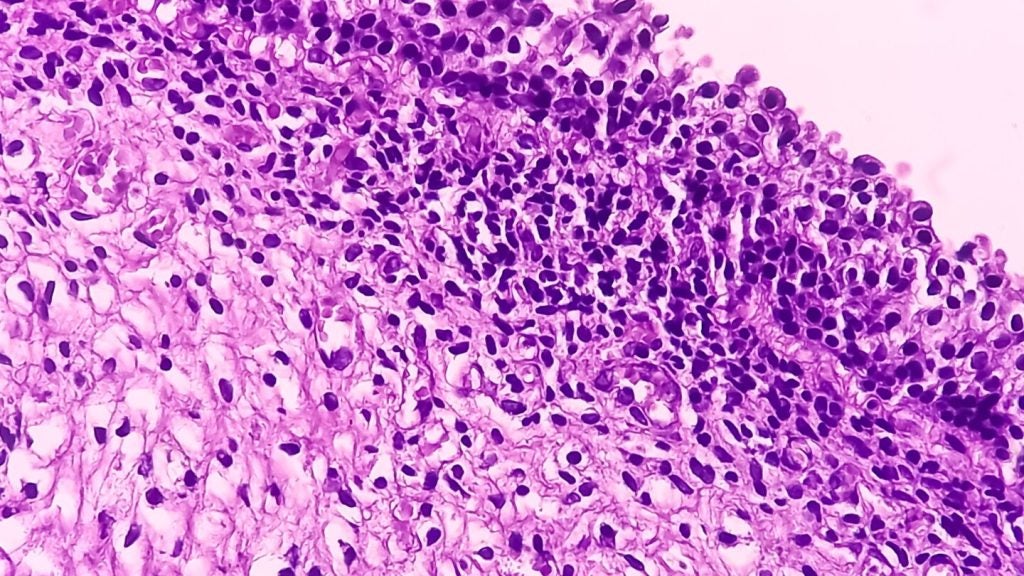Seagen and Astellas have reported that both primary endpoints have been met in their Phase III EV-302 trial of Padcev and Keytruda as a combination therapy for bladder cancer patients.
The EV-302 study (NCT04223856) trialled Padcev (enfortumab vedotin-ejfv) in combination with Keytruda (pembrolizumab) versus chemotherapy in patients with previously untreated locally advanced or metastatic urothelial cancer (mUC).
The open-label, randomised, controlled study, also known as KEYNOTE-A39, met its dual primary endpoints of overall survival (OS) and progression-free survival (PFS) compared to chemotherapy. Patients enrolled in the study were previously untreated and eligible for cisplatin or carboplatin-containing chemotherapy regardless of PD-L1 status.
President of research and development at Seagen, Dr Roger Dansey said that the results could offer patients "a new standard of care for first-line metastatic bladder cancer".
Full trial results will be submitted for presentation at an upcoming medical meeting. The primary endpoint of OS has been verified by an independent data monitoring committee that it crossed the pre-specified efficacy boundary at interim analysis.
According to GlobalData’s Pharmaceutical Intelligence Centre, Padcev is being used in 12 ongoing clinical trials and is planned for use in five additional trials. It is currently approved for use in adult patients with mUC under accelerated approval based on tumour response rate and durability of response. Continued approval may be dependent on verification and description of the benefit.
GlobalData also reports that the drug is being trialled in other oncological indications, including gastric cancer, metastatic breast cancer and non-small cell lung cancer.
GlobalData is the parent company of the Clinical Trials Arena.
Boxed warning for Padcev
A boxed warning for Padcev states the drug can cause "severe and fatal cutaneous adverse reactions", including Stevens-Johnson syndrome (SJS) and Toxic Epidermal Necrolysis (TEN). The reactions generally occurred during the first treatment cycle, but in some cases it occurred later.
Clinicians are advised to closely monitor patients and withhold the drug if the patient develops suspected SJS, TEN or severe skin reactions. If patients are confirmed to have SJS, TEN, or grade three recurrent and grade four skin reactions, Padcev must be permanently discontinued.









